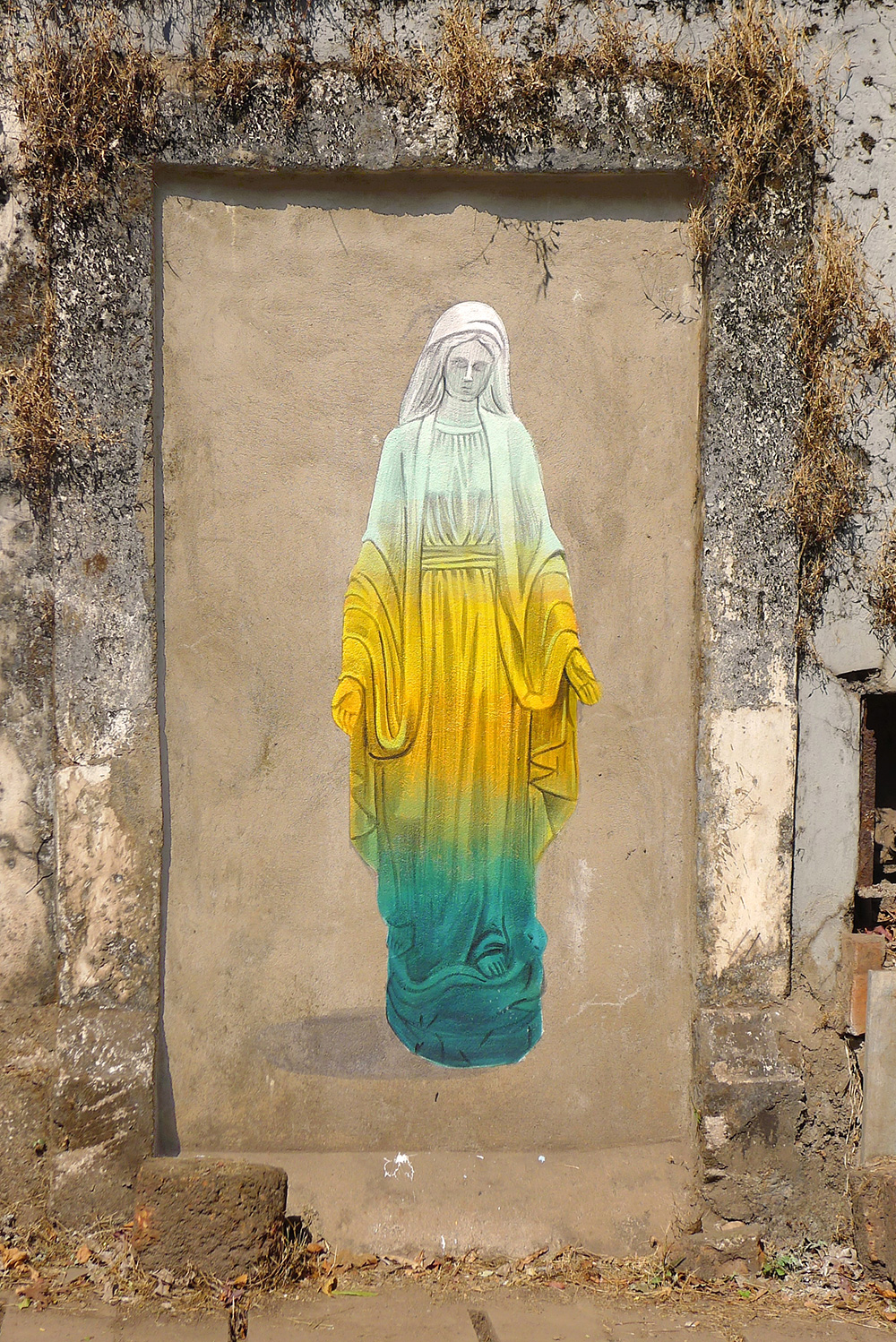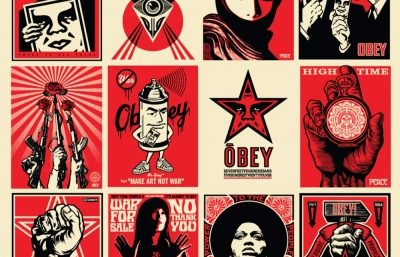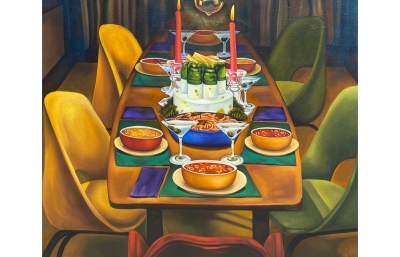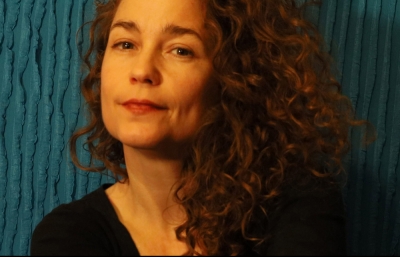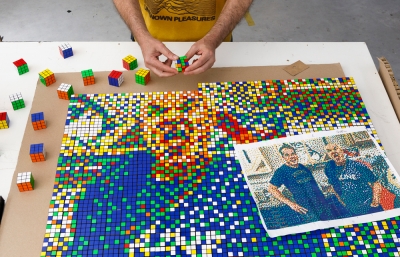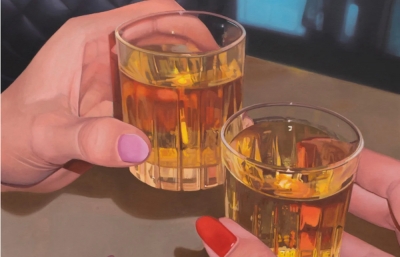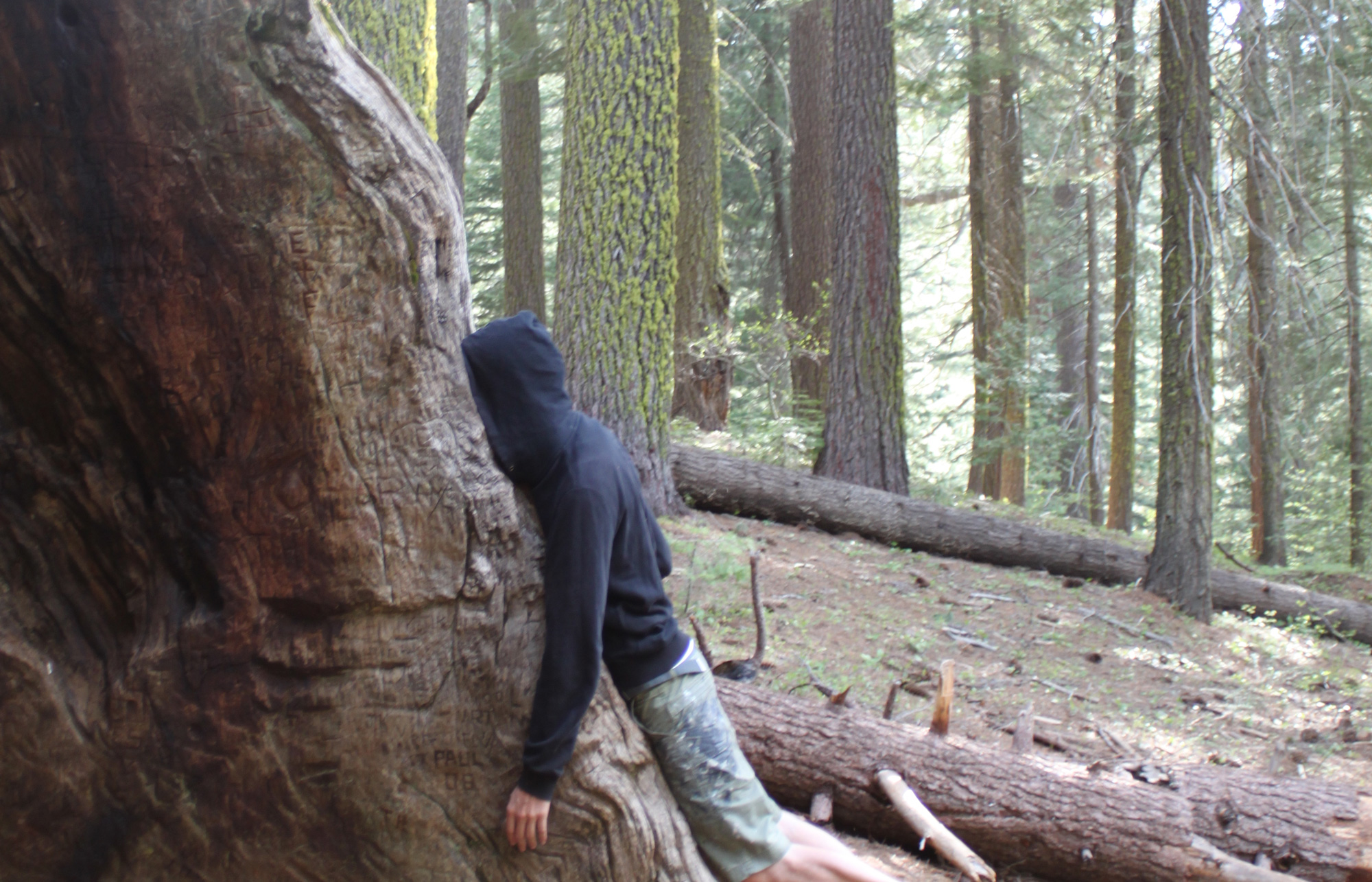
Escif
The Wall And I
Interview by Sasha Bogojev // Portrait by Daniel Muñoz San
It's safe to say that back in 2011, be it Spain, Brazil or the US, the world was a much different place. Whether we are talking about political climate or even the microcosm of traditional street art, the world has accelerated into a digital blur. During that year, Juxtapoz was presented with the opportunity to interview Spanish street art icon Escif for the February cover story. That was the artist’s last published interview until now, where, once again, we find ourselves lucky, anticipating the thoughts and philosophies of one of Street Art’s beloved and important voices.
Escif’s unconventional visual language manages to find new routes for the expression of his witty opinions on politics, society, or just the personal experiences of living in the twenty-first century. When you have a conversation with the Valencia-born artist, you are bound to touch on the most unsuspecting topics. Honest and humble when reflecting and, at times, entering the realms of existentialism or quantum physics, Escif charms with the poetry of his words, often a strand of suggestions that leads to a thoughtful conclusion. Such suggestions define the critical position he's taken in life. Welcome to Escif’s world.
Sasha Bogojev: Is there a particular reason why you took such a long break from the media?
Escif: I don’t consider it essential to know the opinion of an artist to get close to the work. Many times, knowing the motivations of the painter limits our own experience about it. Or maybe it is just that I'm lazy with interviews and prefer to spend my time sunbathing, eating paella or drawing in my sketchbook. On the other hand, I think that an interview can be a good excuse to communicate and share ideas beyond your own work. Maybe this is the reason why I have agreed to do another interview with Juxtapoz, seven years after the last one.
It’s been 20 years since you started painting in the street. How has your motivation changed, from those early days and the first non-graffiti works, to what you create nowadays?
Everything has changed, many times. Myself, too. I try to be aware of these changes and force them into my working process. When I settle for a long time in certain patterns or style tricks, I realize that something is not working. When I paint a wall without risk, without fear, without doubts... when I feel too sure of what I do... then an alarm goes off in my hypothalamus, indicating that my ego is gaining ground. It is time to question myself and look for a different consciousness in the new cells of the body. Everything changes all the time. It is the universal law of nature.
Do you still see the wall as a, "friend to which you are able to tell your problems and share your reflections," as you stated in the last interview?
A wall can be a very powerful channel to communicate with the world, but it can also be something else. Painting a wall is talking to it, knowing it, discovering it. Although it seems like a paradox, I want to think that the moment I paint a wall is an intimate moment of meditation in which everything disappears and only the wall and I are left. The mind disappears, the body disappears, the people disappear, the city enters a silence. Only the wall and me. It is then that I allow myself to share my concerns and problems with it, knowing that no one else will be able to hear us.
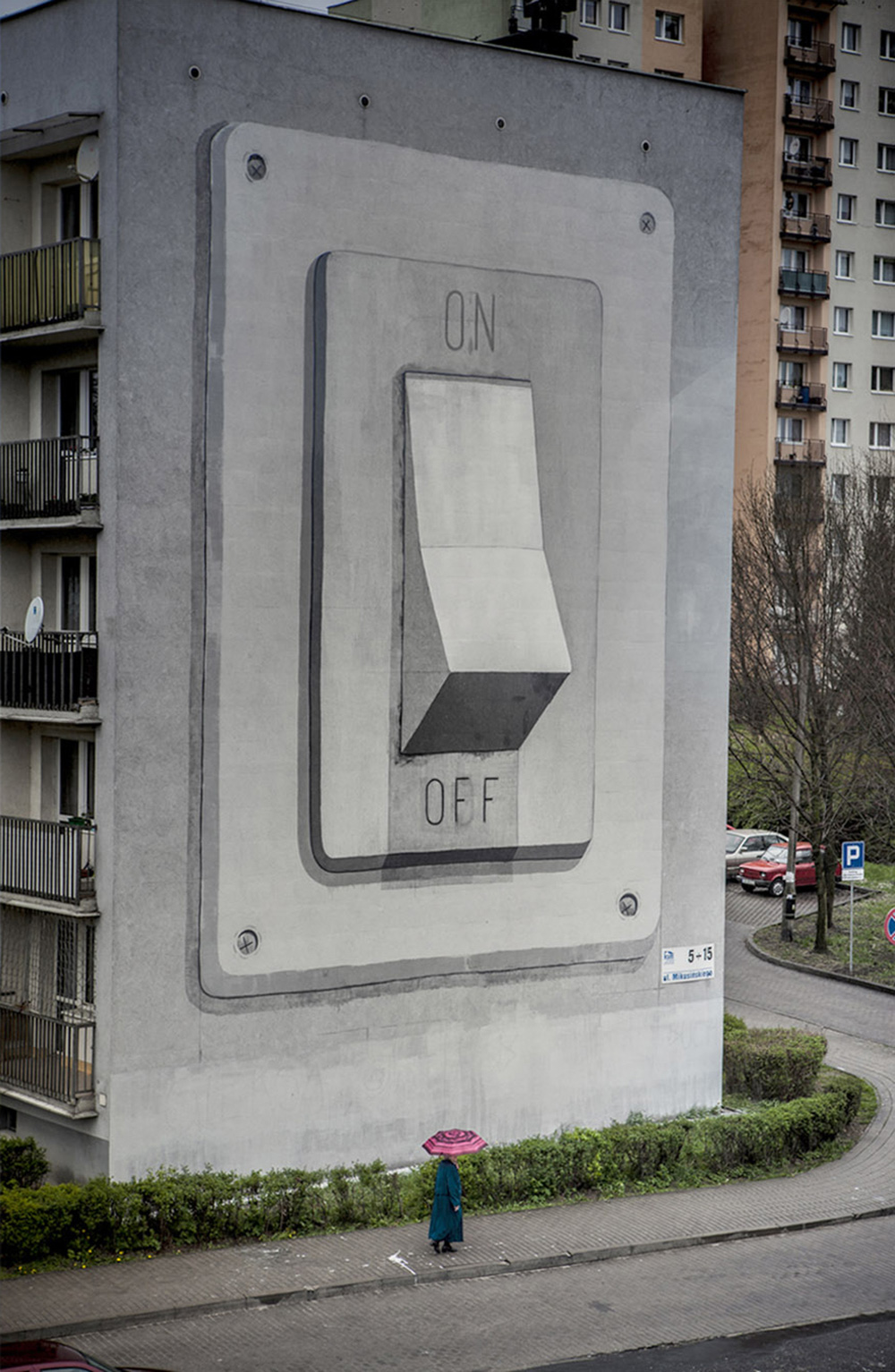
It may happen that many people see the painting, but they will not be seeing what I experienced with the wall. They will be having their own experience through that moment of contemplation. Their own reading of what they saw will come out of that experience. It is different. Even if there were a thousand people watching me eat an apple, and everyone would be taking pictures of that moment, none of them would be able to feel the mixture of acidity and sweetness that is generated in the contact of my teeth with the flesh of the fruit. It really is something very intimate.
What you are saying is quite opposite from what we see around us. Street art has grown into a global phenomenon of massive proportions. How do you feel about that, or do you even pay any attention to what other people are creating?
I don’t believe that street art has grown. The propaganda, the marketing and the institutionalization of street art have grown, but street art is disappearing. I think it is necessary to separate art, art history and the art market. Although they are three fields that communicate and sometimes confuse, they are based on very different values. Art has nothing to do with painting large walls or making millions of dollars. The cranes have climbed so high that we painters have forgotten that painting comes from the earth.
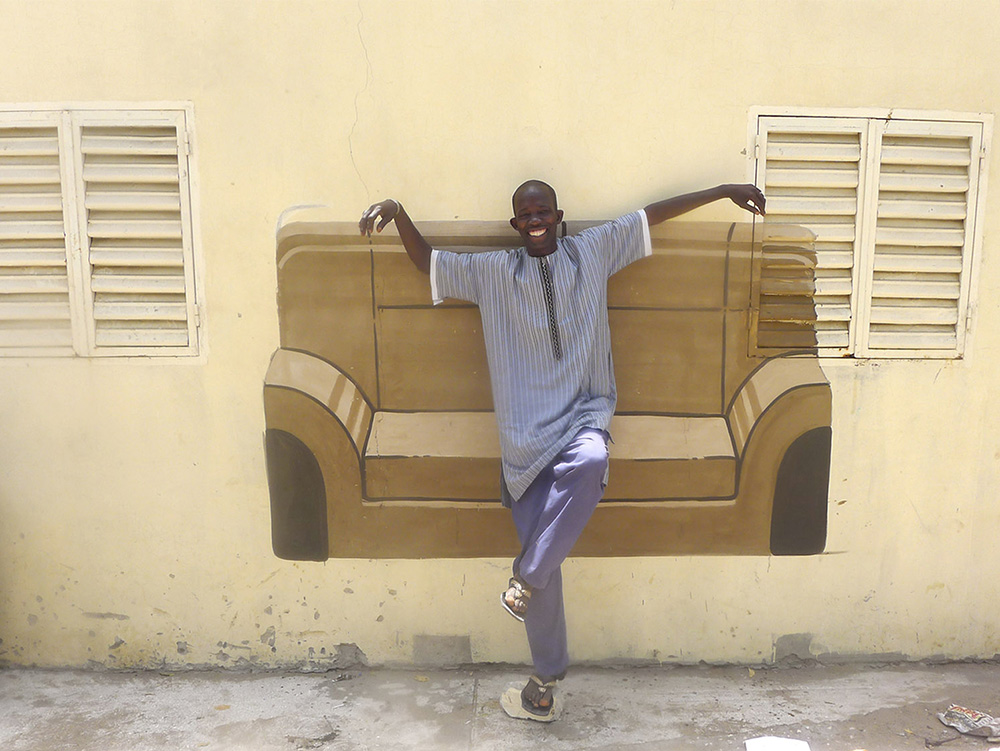
So who working in the street nowadays do you personally consider to be making actual street art?
Actual street art is created by people who don’t care about art: wall painters in Senegal, sign painters in Mexico, Pixadores in Brazil, political painters in Greece, homeless in United States and outsider people all around the world who really believe that what they are doing is a tool to change their context.
You criticized the trend of contemporary street art many years ago with your street works. How do you perceive it now?
I try not to criticize anyone or anything. If I have ever done it, I take this opportunity to apologize. What I do try is to take is a critical position. I think that is something different. I do not believe in good and evil. The position of telling someone how things should be, I find that uncomfortable. It would be very naive and overbearing on my part to do so. Reality is perfect as it is, with all its contradictions. The only thing I can aspire to, with many chances to make mistakes, is to build a personal opinion based on my own experience. That opinion is reflected very often in my work.
I realize that the values that pushed me to go out to paint 20 years ago are very different from those that push me to paint nowadays. Before, it was less ambitious, less egocentric and more free... but also more naive. Over time, I have been gaining experience and awareness, but I have lost spontaneity. Today, I have the possibility of painting large murals in big cities, but I find it difficult to go out to paint at night in dark alleys. I can sell drawings for thousands of dollars, but I have trouble finding time to paint something for my father. Twenty years ago, without knowing it, I was advocating the street as a space of freedom. Today, without knowing it, I am defending the privatization of the little freedom that remains on the street. It is one of the contradictions that I have to face. My fight on the walls, as in life itself, is a fight against myself. Winning is so easy, and so difficult, as accepting with love and compassion that this fight only exists in the conscience. The mind, which limits our existence, only exists in the mind.
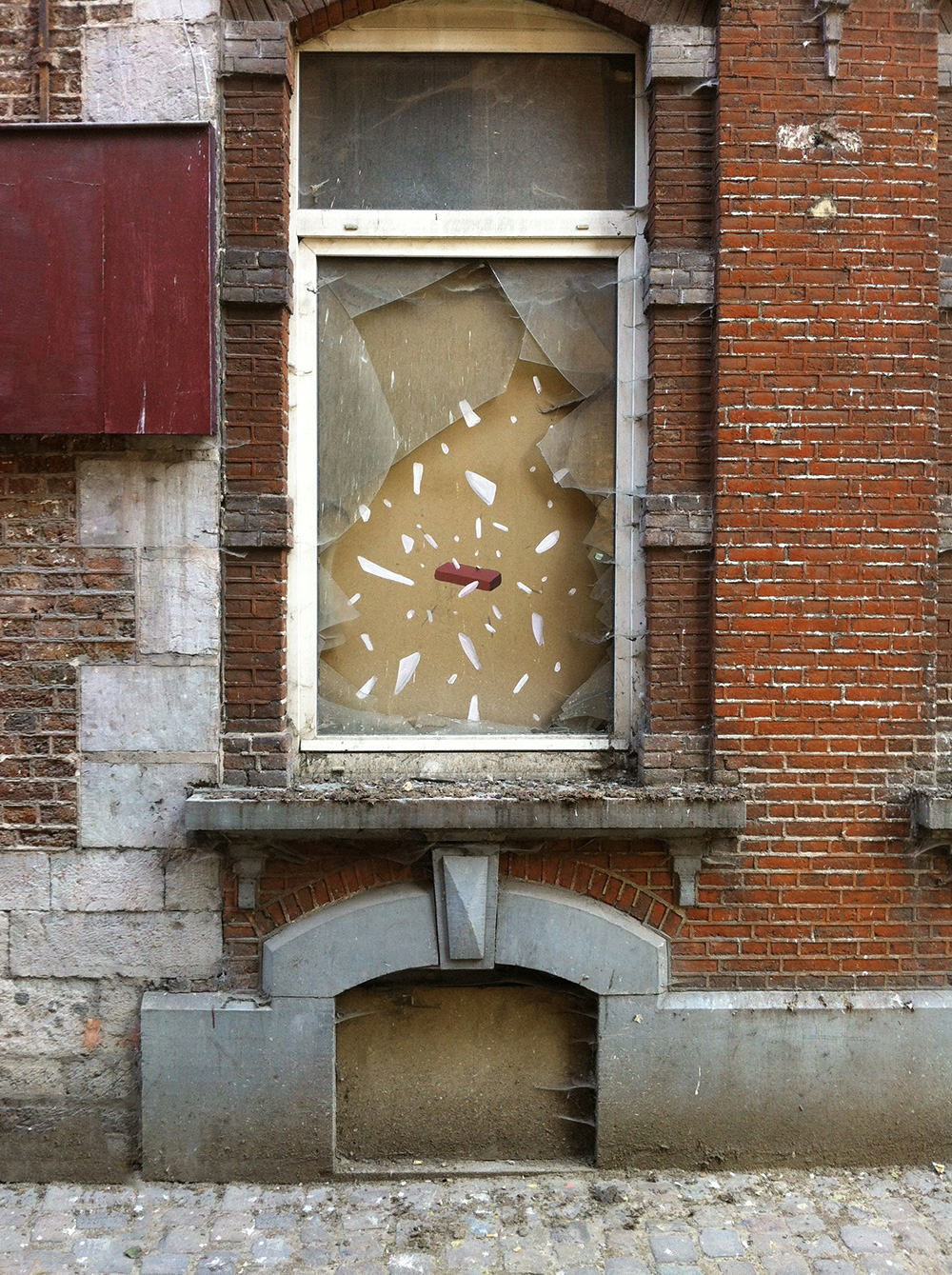
Is getting involved in unique projects like the Breath project in Italy part of that fight? Are you happy with how that turned out, and can you tell us about how it's developing?
The idea of Breath is to plant five thousand new trees on a mountain that was deforested three hundred years ago. The goal is not to plant trees to make a drawing, but to make a drawing to plant trees. To use art at the service of the mountain and not vice versa.
Nowadays, we all use mobile phones and we get fretful when we run out of battery. In the same way, nature also needs to be recharged. Our civilization consumes more energy than the Earth produces. We are depleting the planet's battery, but we still worry about our mobile phone.
Breath is a complicated project because we play with parameters that are difficult to control. The ground, the climate, the pests, the cattle. These elements can play in our favor or against us. In any case, getting to plant almost five thousand trees with the support of more than five hundred people has already been a success for us.
It feels like your work has always been more about message than artistic or decorative value. Do you think you chose art as a channel to pass on a message?
Painting is a means of expression and therefore always has a message. The message can be as radical as painting something beautiful in a poor neighborhood, or as nice as painting something violent in a wealthy neighborhood. The "decorative" paintings are the ones that have the most things to tell. Silence is full of words. I try to nourish my paintings of content in order to avoid others doing it for me.
There is a certain dose of humor or at least absurdity in your work, which I personally relate to. Is that something you aim for, or does it happen accidentally?
I don’t get the joke, ha ha.
Do you mean you don't see the joke in your work or…?
I mean... you don’t get the joke in my joke.
Could you please elaborate on this?
You doooooooooooooooon’t get the jooooooooooooooke in my jooooooooooooooooke. [laughs]
Fair enough. We’ll move on to your painting technique. You've been always self-critical about it, and to me, your passion and ideas are what make you a great artist.
Technique is a very dangerous tool. It allows you to be more precise in the way you express yourself, but it takes spontaneity away. It is very easy to be entrapped by technique because, in itself, it is very seductive, very comforting to see that you know how to do things that others don’t know how to do. The danger lies in forgetting that it is a tool and not an end purpose. Someone who knows solfeggio perfectly will be able to make a perfectly pleasant structured song, but this does not make him a musician.
Painting, like music, plays with the balance between the mind and the stomach. The mind gives us the technique and the stomach gives us poetry, the irrational, the emotional. Sometimes I try to run away from technique and become a house painter, only to let poetry have more weight in the work. In a world governed by the dictatorship of the rational, poetry becomes a miraculous balsam.
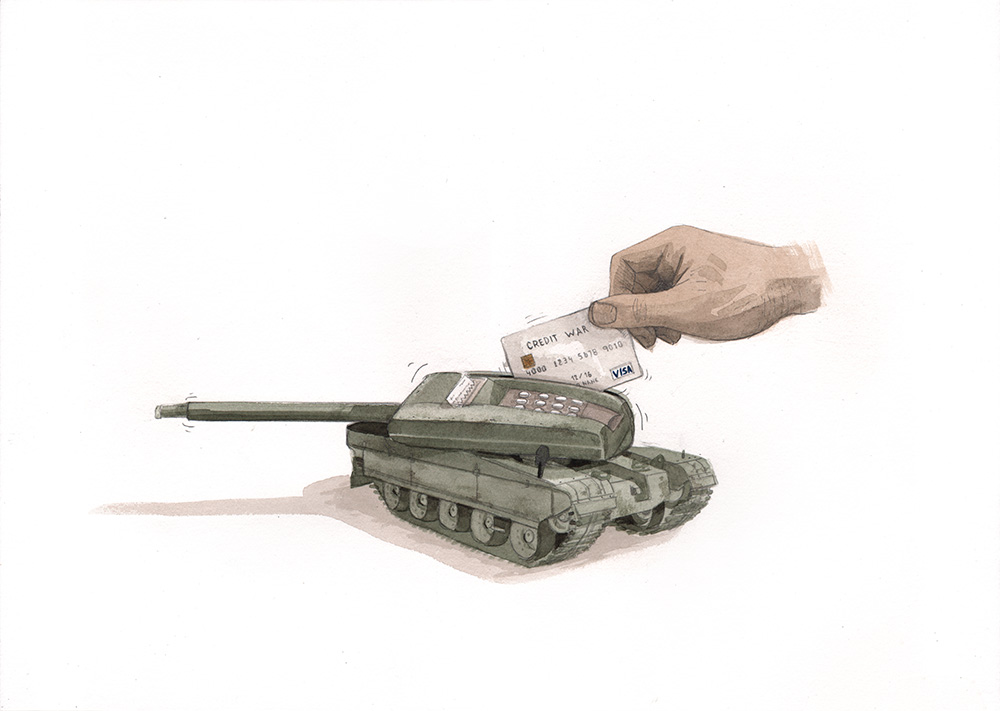
You said previously that, "galleries can appear as decoration stores." Though rarely exhibiting at galleries or institutions, you did shows at the Power Station of Art museum in Shanghai, and the Perm Museum of Contemporary Art in Russia. How did those exhibitions come to be, and what is important when showing indoors?
The first objective of an art gallery is to sell. A gallery is a store, and a store, in my opinion, is not the best place to develop your creativity. I'm not saying it's impossible. I'm just saying that I don’t think it's the best place. The best place to develop your creativity should be where you feel free, without market pressures, without social responsibilities, without the weight of your story. Sometimes museums give you these conditions, and that is very inspiring to work with.
How does it feel for you to institutionalize your work? What are the pros and cons of working for a selected group of viewers?
Nowadays, institutionalizing your work is not just about working inside a museum. When you paint a giant wall in a big city, supported directly or indirectly, by a government, your work is being institutionalized. I would dare to say that 95% of the murals that we see today on the internet are endorsed by institutions. I'm not saying that this is good or bad, but I say that it is very different from what we saw only ten years ago.
Art on the street is moving away from its roots. In my opinion, free art takes place far from institutions because it is uncomfortable for them. It opens doors that the power wants to keep closed. Free art tends to be violent and transgressive because it questions the values of an oppressive society. It's hard to recognize it, but free art frees us, changes consciousness, expands the universe.
When you paint on the street, your work interacts with a complex context full of stories. You are modifying the daily life of many people, and that carries a very great responsibility. You don't paint for you and your friends, much less for the internet. You are painting for a city, for a neighborhood, for a community, for families that you do not know and that you will never get to know. It is very hard to carry this knowledge, but it's also very liberating. When you work indoors, it’s very different. The people who face your work are people who decide to do it. This allows you to play other cards, go a little further.
You've always been focused on pointing out injustice, corruption and irregularities in the system. How does it feel for you personally to see what is happening in Catalonia and Spain nowadays?
What is happening in Spain is very similar to what is happening elsewhere in Europe, which is very similar to what is happening throughout the West, which is very similar to what is happening in the rest of the world. We are afraid of the unknown and there is nothing more unknown to human beings than the reason for their existence. We do not know what the meaning of life is. That is the great question for the history of mankind. There are those who try to solve this enigma with the expansion of love and curiosity for others. There are those who settle in their fear and frustration and reject everything that is alien to them. Such fear is responsible for violence, homophobia, sexism, intolerance, wars, the destruction of the planet. It is the fear of accepting that our beloved "I" is only a lucid dream that will disappear with our death. I think something like this is what is happening in Spain, but I don’t pay much attention. I'm an expert in dodging questions.
Do you feel that the times we live in are especially inspirational for artists?
Not really. There is so much input into daily life that we easily get blocked. Capitalism is based on two big rules: nobody should offer something for free, and boredom is totally forbidden. In other words: everything is business and amusement should be the sole focus of people. That’s the way to avoid possible disturbances in the system. If you don’t like what you see, connect your phone and buy some new likes.
How do you think things will progress from here?
At this very moment, while I’m answering your questions, a huge glacier turns into water, an executive eats papaya in St. Petersburg, a disoriented sparrow cannot get home, a new phone goes on sale and a young person gets upset because someone tagged him on Facebook in an unflattering photo. Undoubtedly, humanity will disappear one day and the universe will hardly pay attention. Perhaps if Mr. Anyone managed to detach himself from his ego and love what he discovers in the mirror, he would stop looking at his phone so much. Maybe then we could appreciate the millions of stars up in the sky. Maybe then he will lose his fear of death. It could be the beginning of a beautiful story and maybe, why not, we could talk about it in the next interview... in seven years.
streetagainst.com
